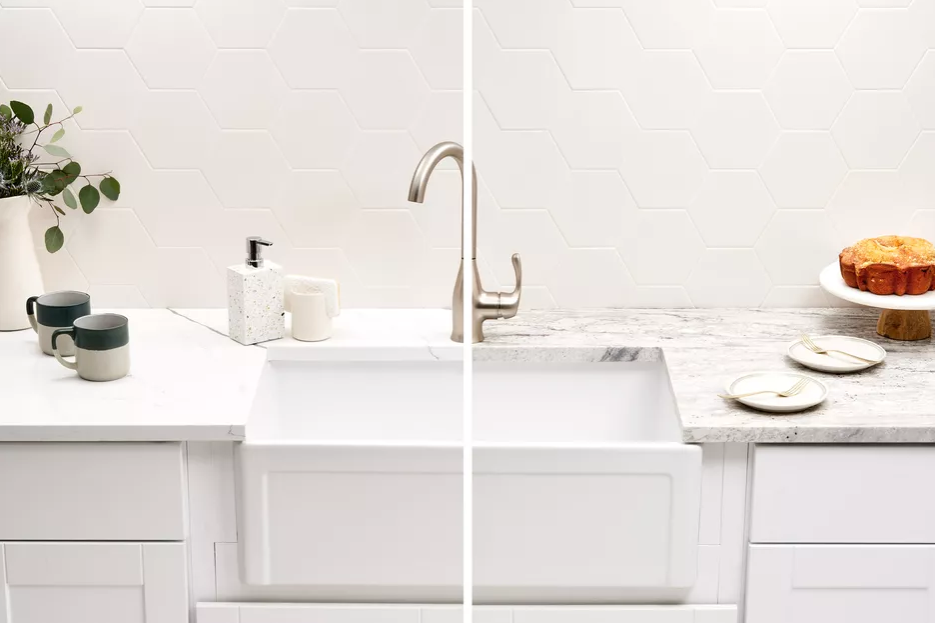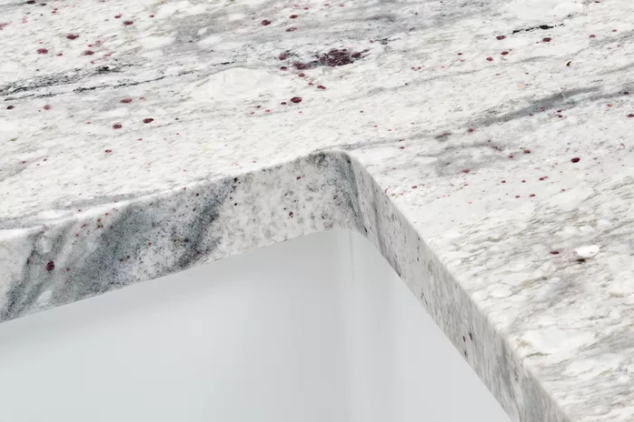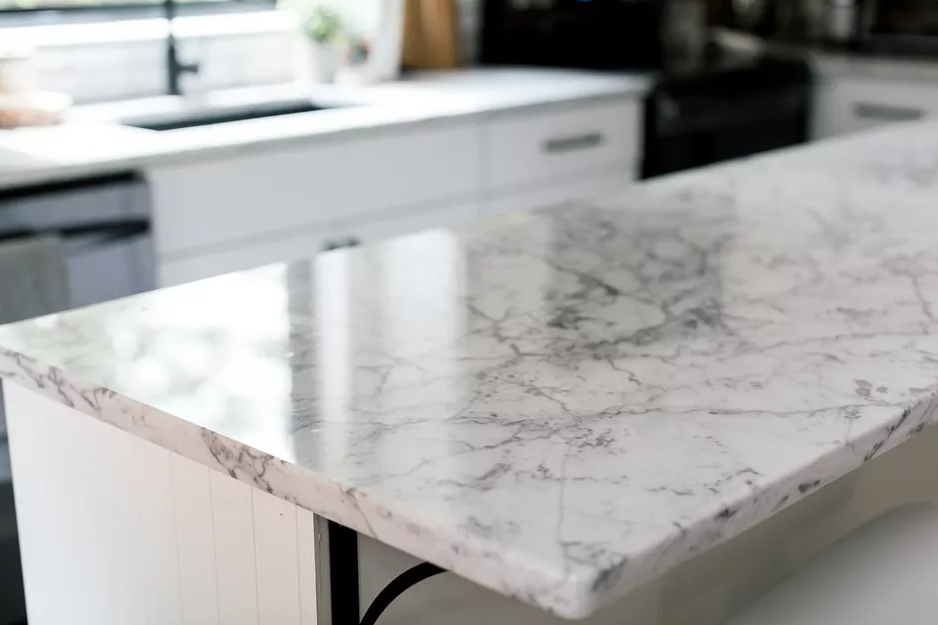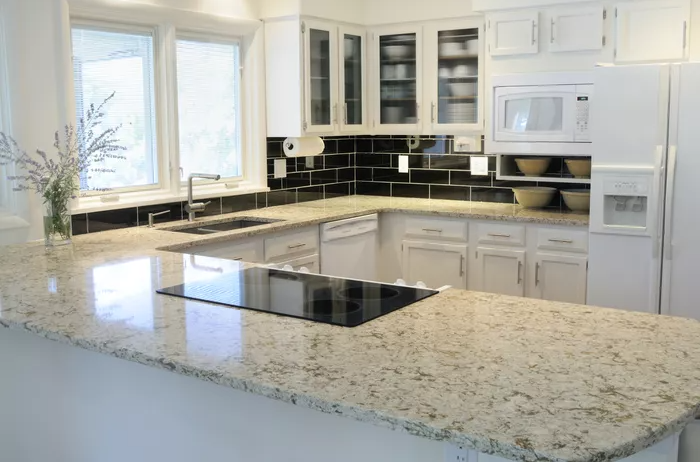Quartz VS Granite Countertops

When narrowing down a choice for bath or kitchen countertops, it usually comes down to two materials: quartz (engineered stone) vs. granite (natural stone). This is not an easy decision because the distinction between the two countertop materials isn't apparent. After all, no matter quartz, or granite, both of them are widely accepted by consumers today. How different are they?
Composition
Granite is a purely natural stone that comes directly from stone quarries and is then cut into thin slabs, polished, and fabricated into countertops.
Quartz countertops are engineered stone products that contain a large percentage of natural quartz but also include resin and other minerals. Take Guanmay quartz for example, it usually include 90% natural quartz and 7% resin, and other minerals about 3%. They are not slabs of quarried stone but are instead formed from stone by products that are ground up and formed into slabs for countertops and other products.

Appearance
The one advantage that granite has over an engineered stone is that every granite slab is slightly different in mineral pattern and color, meaning that your countertop will be unique. Quartz countertops, as an engineered product, are more uniform in appearance, though many colors and unique patterns are available, including forms that do not resemble granite at all.
The choice here is a matter of personal preference. If you truly want the look of natural stone, then choose the truly natural product—granite. But many people find that quartz countertops offer looks that are different and better than natural stone. No matter what material you choose, Guanmay would supply you most excellent countertops as you wish.

Cost
No question about it: Both granite and quartz are premium, high-dollar countertop materials. If you are on a budget, these are not the countertop materials for you.
Granite countertops cost $80 to $175 per square foot, installed. The price differences depend on the style chosen, as well as on the type of edging treatments requested. Quartz countertops range from about $80 to $140 per square foot, installed. As quartz has become more popular and more widely available, costs of basic countertops have fallen, with unique designer styles and colors commanding upper-end pricing.
Pricing for both types of countertop varies because of many factors. The quarry, production ability, labor cost, tariffs and other factors can affect pricing.

DIY Suitability
These are not products that lend themselves to do-it-yourself installation, except for small bathroom vanity tops. Granite and quartz are very heavy materials, and even a relatively small 36" countertop weighs close to 100 pounds. It is best to have a pro fabricate and install your countertop. If you do choose to do it yourself, granite and quartz countertops are installed in the same fashion. If you are spending the money on either costly material, it does not make sense to take risks on DIY installation.
Maintenance and Durability
There is a decided advantage here to quartz over granite, though both materials are very durable. Granite is a relatively porous stone that requires sealing upon installation, then periodic sealing on an ongoing basis. And granite slabs may have inherent flaws that make them prone to cracking. Quartz, on the other hand, does not require sealing, thanks to the resins used in the fabrication of the slabs; and the material is uniform throughout, which means it rarely cracks.
The resins in quartz countertops make them considerably more resistant to staining than granite. By some reports, quartz is also less susceptible to harboring bacteria, again thanks to the resins that make the surface less porous.

Real Estate Value
These are both high-end building materials that will impress prospective buyers. When compared to laminate or ceramic tile countertops, both granite and quartz may slightly improve the real estate value of your home. There may be some buyers who give a slight advantage to granite since it is the more natural material.
Environmental Issues
Both countertop materials are overwhelmingly made of natural materials, but granite countertops come out slightly ahead since they are made from 100 percent stone, while quartz, includes natural materials, color pigments, and polymer resins that bond the materials together.
On the other hand, granite countertops require quarrying out of the earth, while quartz countertops are effectively made from left-over stone byproducts, with no quarrying required.
For a time, beginning around 2008, there was some media-induced fear regarding radon emissions from granite countertops, but recent studies report that there is little or no radon coming from either granite or engineered stone countertops. In the words of the EPA: "It is extremely unlikely that radiation from granite countertops would increase annual radiation doses above normal, natural background levels."

Bottom Line
Both granite and quartz (engineered stone) are premium countertop materials that add real estate value to a home. Granite appeals to people who like all-natural materials, while quartz offers easier maintenance and slightly better durability








